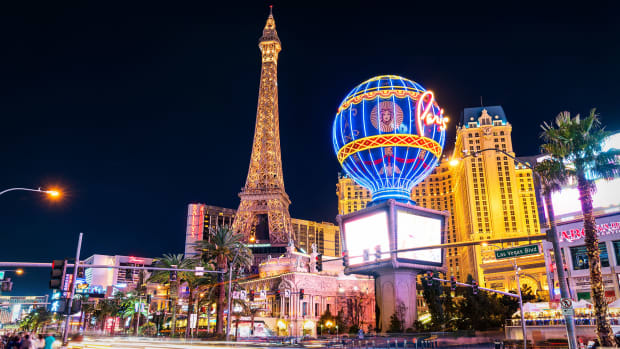
The Las Vegas Strip has more than 60,000 hotel rooms of every type imaginable.
You can book a suite that features a bowling alley or its own swimming pool for thousands of dollars a night. Or you can stay in a budget room with little more than a bed and a bathroom.
Booking a Las Vegas Strip hotel room, however, can be a major challenge. Most hotels use dynamic pricing, meaning the cost will vary based on demand. You'll pay more when there's an event in town or something driving more people to book rooms.
DON'T MISS: Las Vegas Strip Warily Eyes New Deadly Health Crisis
In some cases, it's obvious why prices are high. Rooms during the November weekend when Formula 1 holds a race in the city are already selling for inflated prices. In general, rates are higher during major conventions, when a big-name headline act plays Allegiant Stadium, or on a Sunday when the Las Vegas Raiders football team has a game.
Pricing, however, is not fully transparent, and a lawsuit filed in January alleged that Strip hotel operators -- including Caesars Entertainment (CZR), MGM Resorts International (MGM), and Wynn Resorts (WYNN) -- colluded to artificially inflate the prices of hotel rooms above competitive levels.
The lawsuit placed the blame on Rainmaker, a software platform widely used by Strip operators,
“Our antitrust attorneys have uncovered what appears to be an unlawful agreement in which Rainmaker collects and shares data between Vegas hotel competitors to unlawfully raise prices of hotel rooms,” Steve Berman, managing partner at Hagens Berman, said in a news release.
“What happens in Vegas will no longer stay in Vegas. We intend to expose the under-the-table deals perpetrated by these Vegas hotels, and we intend to hold them accountable.”

Shutterstock
Las Vegas Strip Leaders Want the Case Dismissed
Lawyers working for MGM, Caesars, Wynn, Treasure Island, and Rainmaker owner Cendyn Group filed a U.S. court document asking for the lawsuit to be dismissed.
The filing said that "the plaintiffs, two tourists, did not show any direct evidence that using the platform led to price collusion," the Las Vegas Review-Journal reported.
“The complaint fails at the outset because it is missing every essential ingredient necessary to plead an antitrust conspiracy,” under precedent, defendants said in a joint motion to dismiss the U.S. District Court of Nevada case, the paper reported.
In the complaint, the plaintiffs claim that the hotels and Cendyn have violated the Sherman Antitrust Act. That act, which was first passed in 1890, leaves a lot of room for courts to interpret what's collusion and what isn't.
"The antitrust laws proscribe unlawful mergers and business practices in general terms, leaving courts to decide which ones are illegal based on the facts of each case," the Federal Trade Commission says on its website. "Courts have applied the antitrust laws to changing markets, from a time of horse and buggies to the present digital age."
In the Las Vegas Strip case, the question is whether the different hotel operators, through the Rainmaker software, have shared information in order to increase prices. The resort operators vehemently deny that accusation.
“The complaint fails to identify a single communication between Hotel Defendants, much less one that suggests a conspiracy was afoot,” according to the motion.
Get exclusive access to portfolio managers and their proven investing strategies with Real Money Pro. Get started now.







